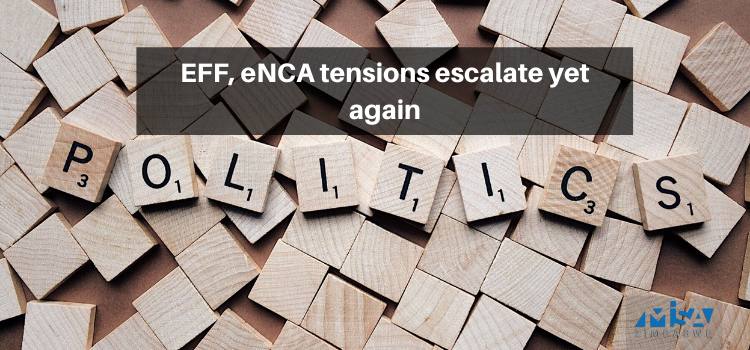Tensions between South Africa’s Economic Freedom Fighters (EFF) and media house, eNCA, escalated at the weekend, with the leader of the opposition party, Julius Malema, saying they would no longer be granting interviews to the broadcaster.
Malema tweeted that no journalists “from eNCA will interview any of the EFF activists anywhere globally”.
Hostilities between the two organisations have been escalating over the years, with eNCA at one time saying it would stop covering the EFF.
EFF has in the past accused eNCA of racism, with the latest case being that of a black legislator who was asked to wear a mask during an interview, while his white counterpart was allowed to speak without a mask.
The EFF has also expressed its anger with the way eNCA allegedly treats its staff.
As for the eNCA, in 2019 it announced that it was boycotting EFF’s elective conference in solidarity with a Daily Maverick reporter who was banned from covering the opposition party’s meeting.
MISA Zimbabwe position
The polarised positions being taken by both EFF and eNCA are regrettable and we urge both parties to tone down their hostilities and resolve their issues amicably.
EFF is South Africa’s third-largest party with representation in parliament and for that reason, the party should be available to all media houses.
On the other hand, eNCA is a major broadcaster and it should be able to accommodate all players.
Accusations of racism should be investigated openly and transparently to foster public trust in the broadcaster.
MISA Zimbabwe calls on both parties, and in the public interest, to find common ground and reach an understanding that does not involve taking polarised positions such as boycotting and shunning each other.
In a democracy, the media should be an enabler for democratic governance, with access to all political players.
Boycotts only serve to deny the audience of critical access to information, which ordinarily should allow the public to make informed decisions about how they are governed.









